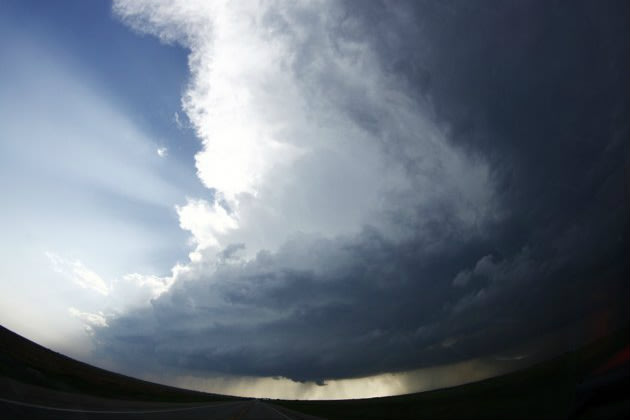20 May 2013
Last updated at 06:26 ET
By Mark Kinver Environment reporter, BBC News Strengthening biosecurity at UK borders and a plant health risk register would help protect the nation's trees from pests and diseases, a report concludes.
The recommendations were made by the Tree Health and Plant Biosecurity Expert Taskforce, convened by the UK environment secretary.
Tree experts have warned that UK tree species face an "unprecedented threat" from non-native pests and diseases.
The report was unveiled on Monday at the 100th Chelsea Garden Show.
The taskforce, convened in November 2012 after the potential devastating ash dieback disease was recorded for the first time in the wider environment, to review domestic and international risks to UK trees and shrubs from new and emerging pests and diseases.
Taskforce chairman Prof Chris Gilligan said: "The UK needs to be better prepared for threats to plant health.
"In the last few years alone, several previously unknown pests and pathogens have emerged, posing significant risks to the UK's crops as well as trees in woodlands, commercial forests and in urban environments."
Plant scientists at a number of government bodies, including the Forestry Commission and the Food and Environment Research Agency (Fera), have warned that the threat from pathogens was continuing to grow as a result of increasing levels of international trade and travel, and changes to the environment.
Import ban
Environment Secretary Owen Paterson welcomed the report's recommendations, adding that plant health was one of Defra's top priorities.
"We are already working on implementing a plant health risk register and are putting plans in place to predict and control the spread of tree diseases," he said.
Continue reading the main story
Symptoms of ash dieback
- Diseased saplings typically display dead tops and side shoots.
- Lesions often found at base of dead side shoots.
- Lesions on branch or stem can cause wilting of foliage above.
- Disease affects mature trees by killing off new growth.
Mr Paterson added that he planned to hold a summit "with all the main people, groups and businesses who have an interest in our trees".
He also revealed that he planned to impose an import ban on sweet chestnut trees from areas where sweet chestnut blight was considered a problem.
Recently, the Horticultural Trades Association (HTA) called for an import ban as the blight (caused by the fungus Cryphonectria parasitica), usually fatal to infected trees, continued to spread through much of mainland Europe.
The UK had a close escape in late 2011 when the disease was identified at nine locations but the infected trees were destroyed before the fungus became established in the surrounding environment.
Speaking to the BBC, Fera's head of plant health public engagement Dr David Slawson echoed Prof Gilligan's views: "Firstly, it is important to say that is very difficult to prioritise what are the main threats but I would always say the main threat is 'unknown'."
"It may sound slightly alarming, but the likes of Phytophthora ramorum was not defined by science when it started causing problems."
The Forestry Commission said P. ramorum, first found in the UK in 2002, infected few trees until 2009 when the pathogen was found infecting and killing large numbers of Japanese larch trees - an important economic timber species - in South West England.
Since then, it has been recorded in all other British nations and the Northern Ireland.
Prof Gilligan, head of Cambridge University's School of Biological Sciences, said:"By increasing our understanding of what pests and diseases are the biggest threats and how best to mitigate their impact, we can minimise potentially devastating outbreaks."
The report was launched at the Stop the Spread show garden at the Chelsea Garden Show, which was designed to contrast "the beauty of a British garden with the potentially damaging effects that plant pests, diseases and invasive non-native species could have on our gardens, woodlands and countryside".
Source: http://www.bbc.co.uk/news/science-environment-22575543#sa-ns_mchannel=rss&ns_source=PublicRSS20-sa
Mayim Bialik Rich Kids of Instagram felix hernandez julia child Ron Palillo Chad Johnson Twitter Helen Gurley Brown








